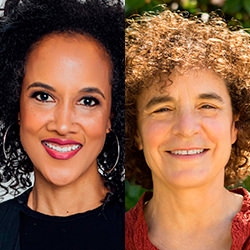

Search Results: integrity
-
Feelings and Needs form the cornerstone of Nonviolent Communication (NVC), offering a profound framework for cultivating empathy, compassion, and authenticity in our interactions. This comprehensive 9-page Feelings and Needs Reference Guide is designed to support you in integrating these vital concepts into your daily life.
-
Feelings and Needs form the cornerstone of Nonviolent Communication (NVC), offering a profound framework for cultivating empathy, compassion, and authenticity in our interactions. This comprehensive 9-page Feelings and Needs Reference Guide is designed to support you in integrating these vital concepts into your daily life.
-
Awaken your soul force and live from compassion and clarity while grounded in human needs.
-
The “mind” or our “ego” are often depicted as a static entity, an unchangable part of human nature, and as obstacles or negative parts of ourselves to overcome. This view creates maligning, a split within us, while remaining invisibly part and parcel of authority-based societies --the dominant culture and institutions into which we are born. Instead, I want to advocate an integration of reason and emotion, mind and heart, plus self and others.
-
- Learn, practice, and integrate the basic components of NVC
- Understand how to use observations, feelings, needs, and requests
- Grow your communication skills and strengthen your relationships
- Discover how to express yourself honestly and authentically!
-
What is empowered speech and how does it link to interdependence? How do you speak in a way that increases the chances of being heard and creates space where individuals are more inclined to listen and act? In this excerpt from the 2021 course, Working Together for Change, Itzel and Kathy explore how to do this by integrating empowered speech, attuned speech, and a commitment to maintaining connections.
-
Ask the Trainer: Is a confidentiality agreement typically used in NVC practice groups?
-
The wisdom which NVC is based on is as old as humanity itself. This telecourse recording draws insights from NVC’s elder siblings of Taoism, Buddhism and indigenous culture to offer new ways of approaching common NVC ‘stuck’ places.
-
What's really going on underneath the surface when we bring or encounter blame, judgements, pain -- and thereby the inability to empathize, be present, attuned, or responsive? Why does this happen even if one or more people in a relationship dynamic is working hard at bringing in an NVC response? This article addresses these and more questions from the perspective of how our brains are affected in our relationships.
-
- Integrate the underlying principles of NVC into your daily life
- Create a daily practice of self empathy and connecting to needs
- Strengthen your own personalized set of NVC skills
- Increase your sense of power in the world
- Deepen connection with yourself and those in your life
-
- Learn how to transform NVC into a tool for systemic awareness and healing
- Examine the influence of difference, and uncover pathways that strengthen its capacity
- Learn to receive and offer feedback on impact in situations fraught with power differences
- Explore specific ways in which NVC systemically supports the full flowering of humanity
- Delve into the dynamics of cultural differences, and discover how NVC can systemically contribute to a liberation perspective
-
The energy of the most private events of our lives (such as sex) can ripple out and affect everything we do, like the ripples of a rock thrown in a pond. Instead of segregating -or sometimes denying- parts of ourselves, we can bring our blind spots and our shadows in self and relationships into the light. Having growth in a private life can transfer onto other areas of life.
-
Ask the Trainer: "In trainings I say our jackals are thoughts and now I've come to wonder if all thoughts are jackals...?"
-
Explore how NVC supports mediation and conflict resolution in this engaging course recording.
-
What exactly IS empathy? Empathy is the connection that happens between you and another when you experience your differences while holding on to underlying threads of commonality. In this recording, John will be sharing in-depth practices designed to give you the ability to speak and listen from a place of empathic presence, as well as a Self-Connection Practice specially formulated to help you come back to that empathy connection when you’ve gotten triggered into “fight-flight-freeze.”
-
One thing that makes empathic understanding difficult yet valuable is that it can be humbling. If I really open myself to hearing and understanding, while trusting my inner strength of self-knowing, I may be changed by what I hear. My core beliefs or understanding might change and grow. This openness could be key to transforming the energy of conflict into new possibilities for greater connection, creativity, and well-being.
-
Grief is often confused with anguish. Anguish is a painful feeling that comes along with deep resistance to an experience or truth. Grief that leads to healing is an expansive state. It is a willingness to be with an experience and truth. If you're not resisting grief, then it's a neutral-to-pleasant experience. Pleasant sensations can include a sense of space and relief as something is integrated and tense holding releases.
-
A challenge is an expansion of making a clear, positive doable request — and, when given, the person feels deeply seen by the challenger. A challenge isn't just about getting someone to take action on something important to them; it's a fierce form of empathy that supports people in connecting with their life force, and integrates it into their lives with action. A real challenge is tied to the receiver's goals, passions and dreams -- and expands their potential.
-
This chart helps translate words that imply blame into true feelings and unmet needs.
-
Kelly Bryson explores courageous honesty and how truth shared openly deepens connection.
Quick Links

Stay in Touch!
We value your privacy, won't share your email address and you can easily unsubscribe any time.
















